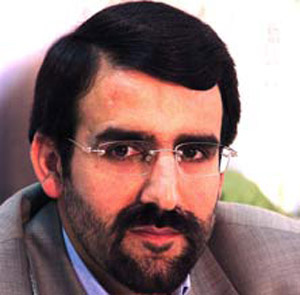Finalizing the Bushehr Project Will Save Face for Moscow

MS: The news announced was that fuel will be injected into the power plant in a few days. This is now a reality and no longer a promise. It has been also interpreted by Russian news agencies as the inauguration of the Bushehr power plant.
Of course, as always, propaganda may have driven the publishing of this news by the Russians, so as to keep their reputation as a balanced actor (towards Iran and the US) intact in order to have further maneuverability and to gain more from both sides. Medvedev’s recent remarks directed against Iran have had a diverse set of reactions inside his country. There are many among the Russian people and their elite who frown at the possibility of Moscow joining the West’s ‘club’. Bushehr will help Russia to improve its image and keep the door open for future talks with the Iranians. Meanwhile, as the Russian Prime Minister Vladimir Putin stated this Tuesday in Istanbul, the Bushehr nuclear power plant will initiate its operations in August.
IRD: How do you assess the Russians’ stance from voting in favor of the sanction Resolution 1929, to transferring fuel to the Bushehr nuclear plant?
MS: I think there are two points which we should take into consideration. First, Moscow seeks economic interests and strategic interests in its ties with other countries. These interests may occasionally contradict each other. Economic growth, taking a role in the maintenance of Europe’s collective security and sustention of strategic, unparalleled influence in the former Soviet Union’s republics are the key foreign policy priorities for Russia, all of which are supposed to be satisfied through extensive ties with the United States.
The Kremlin is meanwhile interested in keeping its relations with Iran in good shape and in continuing regional cooperation. There is also the issue of the Russians’ vested interests. They enjoy extensive trade relations with Iran, and starting up the Bushehr nuclear power plant will project an image of a reliable partner by Moscow.
Meanwhile, inside Russian politics, there are different definitions of ‘strategic spheres’ and ‘long-term interests’. Medvedev and his team follow an approach that inclines towards the West, while nuclear affairs are under former president Vladimir Putin’s influence. Different approaches may at times lead to different behaviors by Moscow.
IRD: A couple of months ago, Ahmadinejad and Medvedev traded barbs to the surprise of many political observers. Do you believe the inauguration of the Bushehr power plant can take things back to the place they once were in terms of Iran-Russia relations?
MS: I think both countries are going through critical days. Inauguration of the power plant can revamp troubled relations. It could also prove that despite diverse sanctions, Tehran and Moscow are determined to continue their close partnership. Russia will, however, remain under heavy pressure from the US and Israel –the West in general- to tie the fate of the Bushehr power plant to Iran’s nuclear dossier.
During recent days Paris and Washington took stances which prove this speculation. Future developments will show if Russia budges or not. Tehran and Moscow should endeavor to keep their nuclear cooperation intact and separate from illegitimate sanctions. Regulating bilateral relations is a heavy burden for both the Iranian and Russian diplomatic apparatus.
IRD: John Bolton has suggested that Israel should attack the Bushehr nuclear power plant on August 21 (today), which is the day the facility officially starts operating. What are the roots of such statements?
MS: It is more psychological warfare than anything else. Both the Israelis and the Americans are aware of the long-term consequences of such an attack. Such remarks are typical of Bolton and his ilk, but Iran’s regional clout and its defense power will inflict a heavy price on anyone who actually conducts a raid. Israeli and US efforts could be just focused on impeding Iran’s nuclear projects.
Construction of the Bushehr nuclear power plant follows international norms, and Russia has made commitments. The Russians have already been well behind schedule, which has raised many questions and objections among Iranians. If Moscow wants to improve its image inside Iran and save its reputation for any possible nuclear cooperation with other countries, it has to finalize the project.

